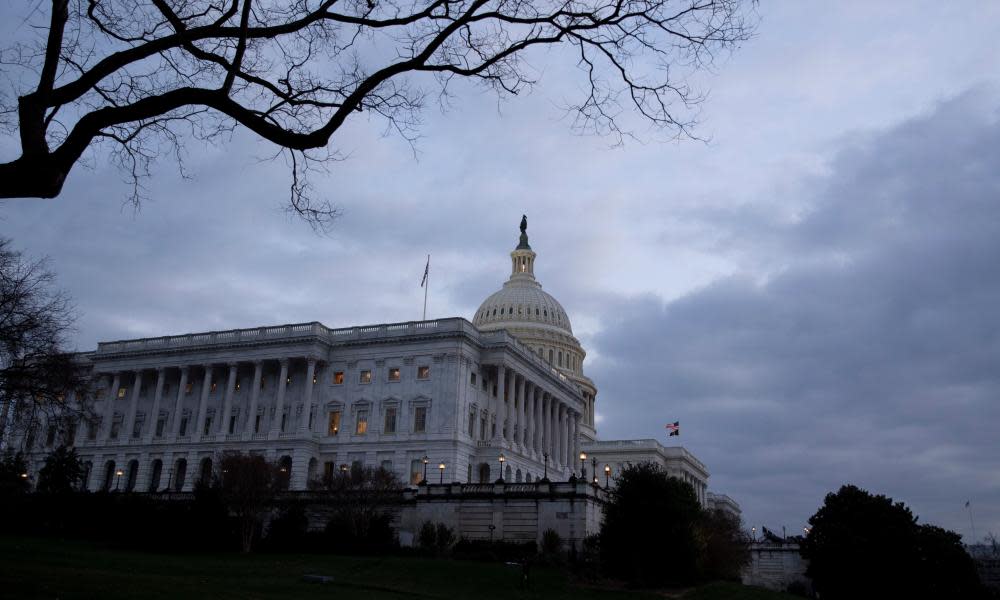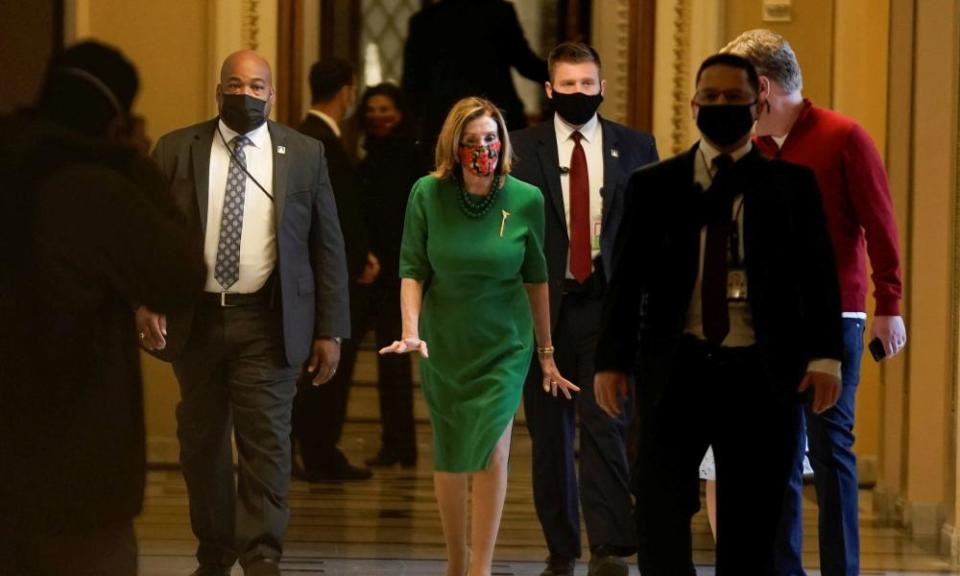US Congress passes $900bn Covid-19 aid bill after months of gridlock

After months of Washington gridlock, Congress has passed a $900bn pandemic relief package, finally delivering long-sought cash to businesses and individuals as well as resources to vaccinate a nation confronting a frightening surge in Covid-19 cases and deaths.
President Donald Trump is soon expected to sign the package into law.
The vote came as preliminary figures suggested the US was on track to see more than 3.2 million deaths this year, or at least 400,000 more than in 2019. A rise of about 15% would mark its biggest jump in a single year since 1918.
After days of furious negotiation, both legislative chambers worked deep into the night to pass the massive bill, with the House of Representatives first approving it and the Senate following suit several hours later in bipartisan votes.
Lawmakers had tacked on thousands of pages of other end-of-session business in a burst of legislation as Capitol Hill is set to close down for the year.
The House of Representatives passed the relief package late on Monday night in an overwhelming vote of 359 to 53. It moved to the upper chamber of Congress, the Senate, where lawmakers approved it just before midnight with a 91-7 vote..
The relief package, agreed to on Sunday and finally released in bill form on Monday afternoon, would establish a temporary $300-a-week supplemental jobless benefit and a $600 direct stimulus payment to most Americans, along with a new round of subsidies for hard-hit businesses and money for schools, healthcare providers and renters facing eviction.
The 5,593-page legislation, the longest bill in memory and probably ever, came together on Sunday after months of battling, posturing and post-election negotiating that reined in a number of Democratic demands as the end of the congressional session approached. President-elect Joe Biden was eager for a deal to deliver long-awaited help to suffering people and a boost to the economy, even though it was less than half the size that Democrats wanted in the fall.
Yet though the bill holds out the promise of temporary relief to millions of struggling Americans, prominent Democrats asked why the deal took so long to reach yet still fell short of meeting the country’s dire needs.
Related: US healthcare workers protest chaos in hospitals' vaccine rollout
The 11th-hour nature of the deal is likely to lead to scenes of unseemly haste in both House and Senate, with lawmakers given just a few hours to read the huge bill before voting.
If the House passes the the bill it then passes to the Senate where the Republican majority leader, Mitch McConnell, held out the hope of ramming it through also within the day.
Donald Trump has complained that Congress has failed to act so far, stating in a tweet on Sunday: “Why isn’t Congress giving our people a Stimulus Bill? [The pandemic] wasn’t their fault, it was the fault of China. GET IT DONE, and give them more money in direct payments.”

The White House has indicated the president will sign the bill.
That was a moment of rare bipartisan cooperation, as it was thrashed out late on Sunday. It includes $286bn in direct economic relief, with more than half going on payments of $600 to individuals making up to $75,000 or couples up to $150,000.
In addition, the US government will restart pandemic unemployment benefits at $300 a week. The benefits, which will last until 14 March, are down from $600 payments that expired in July.
With cash support cut in half, prominent Democrats lamented that it had taken until the last minute to iron out disputes, and that when finally done the deal would still fall short. Chris Murphy, a senator from Connecticut, said it was too little, too late.
“For months, Americans buckling under the weight of Covid-19 begged Congress for help,” he said. “But up until a few days ago, Mitch McConnell refused to even come to the negotiating table. It shouldn’t have taken until the last possible minute to fund the government and to provide some measure of relief to those in need.”
Murphy said he would back the bill, because it would “help small businesses keep their doors open. It will help those who have lost their jobs. And it will help make sure that we’re able to distribute the vaccine as quickly as possible to people in our state.”
Other top Democrats including Nancy Pelosi, the House speaker, and Chuck Schumer, the Senate minority leader, also said the bill did not go far enough. They have pledged to push Joe Biden for more relief when he takes office on 20 January.
But given the depth of Republican intransigence, the likelihood of Biden steering another large relief bill through Congress appears slim, further highlighting the critical importance of two Senate runoff elections in Georgia on 5 January that will determine which party controls that chamber.
Among elements of the relief deal are a $325bn fund to provide forgivable loans to small businesses, $82bn for schools and colleges and $69bn to assist distribution of vaccines. For the first time, the federal government will set up a rental assistance program to help people who have fallen behind.
Wrangling over the bill included a rare Saturday session. At the end of discussions on Sunday, McConnell said: “We can finally report what our nation has needed to hear for a very long time: more help is on the way.”
He added: “Moments ago, in consultation with our committees, the four leaders of the Senate and House finalised an agreement for another major rescue package for the American people.”

